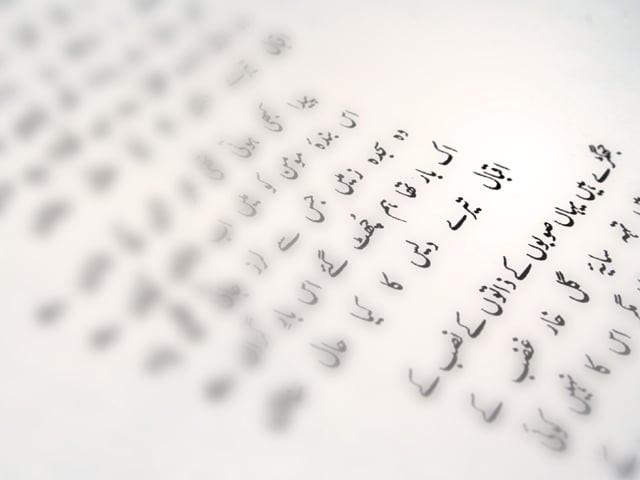Ministry opposed bill: National status for regional languages opposed
Law ministry says Article 251 empowers provincial assembly to prescribe measures for promotion of provincial language.

Citing constitutional impediments as reason, the federal law ministry has opposed a bill for teaching, promoting and using provincial languages in addition to the national language.
Awami National Party (ANP) Senator Haji Adeel had suggested amendments in the Article 251 of the Constitution and said the word ‘language’ in the heading should be substituted with the word ‘languages’.
He said it should be inserted that the national languages of Pakistan are Urdu, Punjabi, Sindhi, Pushto, Balochi and Seraiki, “and arrangements shall be made for their being used for official and other purposes within fifteen years from the commencement of the Act”.
Similarly, in Clause 2 for the word ‘Urdu’ should be substituted with the phrase ‘the national languages’ and in clause 3 for the words ‘National Language’ be changed with ‘National Languages’, he had recommended.
However, the law ministry replied that as regards regional languages –Punjabi, Sindhi, Balochi, Pashto and Seraiki – Clause 3 of the Article 251 empowers the provincial assembly to prescribe measures for teaching, promoting and using the provincial language in addition to the national language.
Haji Adeel had stated that after the 18th Constitutional Amendment it was necessary to give all languages of federating units the status of national languages. Even in India some of these languages have been declared national languages, he added.
The law ministry, however, said Senator Adeel’s statement was factually incorrect. “The position stated by him is not supported by Article 343 of the Indian Constitution, which says the official language of the Union (Federation) shall be Hindi in devanagri script.”
It said Article 345 of the Indian Constitution empowers that legislature of a state (in our case a provincial assembly) to adopt any one or more languages to be used for official purposes of the state. “The Indian Constitution, nowhere, declares regional languages as national languages” the ministry said. The law ministry’s reply further said the bill would not serve any purpose when it was read in light of the Article 28 of the Constitution, which clearly spoke of preservation of language, script or culture.
“The Constitution being a sacred document and not an ordinary law, its sanctity has to be preserved at all cost and must not be tinkered with,” it said.
According to the official website of the Khyber-Pakhtunkwa (K-P) government, Pashto will be introduced as a compulsory subject in 17 districts from grade one to grade ten, with Hindko, Seraiki, Khowar and Indus-Kohistani introduced in the remaining seven districts of the province.
Moreover, the K-P government had also taken steps to see to the formation of a Khyber-Pakhtunhwa Regional Languages Authority (KPRLA), which would work for the promotion of all the languages spoken in the province, the ministry added.
Talking to The Express Tribune, the K-P education minister Atif Khan said his ministry’s focus was on English language and the KPRLA had become a redundant body. “We have trained thousands of teachers to teach English to children so they could compete with their peers studying in the private institutions,” Atif Khan said.
Published in The Express Tribune, July 2nd, 2014.



















COMMENTS
Comments are moderated and generally will be posted if they are on-topic and not abusive.
For more information, please see our Comments FAQ